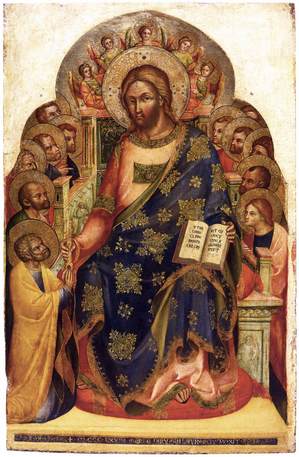The liturgical year of the Church brings to the front burner of the spiritual life a number of things at this time of year: questions about salvation, death, hell, heaven, purgatory, Christ's kingship, conversion, and the like. In fact, a central piece of our spiritual work in the School of Community (of Communion and Liberation) right now is understanding what it means to convert, to live in spirit of conversion, to live as though we REALLY believe in Christ, turning away from sin, and turning toward the Lord. Father Julian Carron is hitting members of Communion and Liberation pretty hard with the call to conversion. However, if truth be told, Father Carron is taking his cue from Pope Benedict. Nevertheless, on the human level, for finite beings we have to be concerned with such things because we don't live forever, just in case you didn't know this fact; we are rightly concerned now because once we're dead, there is no way of making a conversion (sorry, there is no reincarnation).
A professor at the Institute of Philosophy and Theology of Shkodër (Albania), Jesuit Father Mario Imperatori, wrote an essay that caught my eye, "Eschatology and Resurrection of the Body in St. Thomas Aquinas," published in the current issue of La Civiltà Cattolica (issue # 3849; pp. 257-268). As you know, this periodical is reviewed by the Secretary of State of the Holy See prior to publication.
In the article, Father Imperatori argues, "St. Thomas's doctrine regarding glorified bodies is based on the resurrection of the flesh, interpreted in an anti-spiritualistic manner. For him, in fact, the intellectual soul is the unique and subsisting shape of the human being; after the resurrection carried out by God, the body too will share with the soul the same incorruptibility and bliss; it will be a spiritual body not because it becomes spirit, but because everything will be subjected to the spirit. Aquinas adds that the human body, because of its wholeness, will continue to be sexual, despite the absence of procreation. The Eschatology of St. Thomas has proven controversial, but it has the merit of asserting the bodily-spiritual reality of man as the ultimate purpose of creation."
So, the human body will relate as a sexual being in the eternal life. Interesting. Thanks for letting me know. What joy that will be, don't you think? I wonder what relating sexually means for a glorified body.


